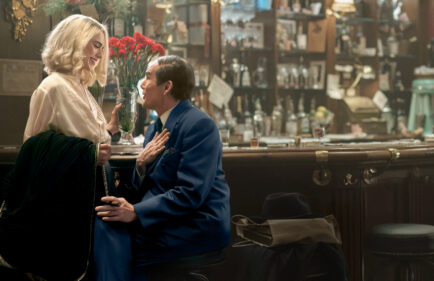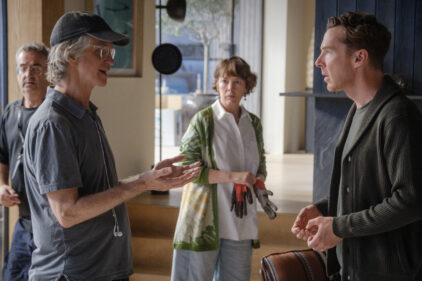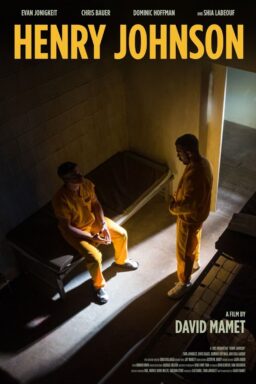Dusan Makavejev tells this story:
“Twenty years ago, a Yugoslavian friend of mine was making sculptures that were meant to be touched. Parts were hard or soft, sharp or wet. You reached in, out, around and – surprise! You touched your own finger. What a strange experience, feeling yourself as someone else.”
He grins. He is a big, bear-like man with an embracing personality, and he tells the story as if we’re supposed to see the perfect humor of it all, not learn a lesson. Then he says, “That’s what I’d like my films to do – to bring people to see in themselves things they might otherwise never accept.”
We’ve straggled in out of the rain on Sunday night, after a weekend’s retrospective of four of his films, to hear Makavejev talk about what he does. Almost immediately, there’s a sense of conspiracy; Makavejev’s films, as much as his personality, have the ability to get us on his side. They invite us to share his view of very serious subjects like Stalinism, sex, Marxism, pornography, Wilhelm Reich. His view is that such subjects are best approached in a style of cheerful anarchy; that it’s better to lose our bearings than our humor.
Makavejev’s name is not on every tongue, true, but he’s well-known in Chicago, as Yugoslavian directors go. His “Innocence Unprotected,” a fable about a brave acrobat and the Serbian talkie he made in 1944 as an act of resistance against the Nazis, won the 1968 Chicago Film Festival. His “WR: Mysteries of the Organism,” a movie in which Reich and Stalin found themselves in the most unexpected juxtaposition, won him the best-director award here in 1971 (and caused tempests at the Cannes and New York festivals).
His “Love Affair, or the Case of the Missing Switchboard Operator,” played here briefly in 1972. It was about love and rat exterminators. These films, and “Man is Not a Bird,” which was the first film he made after a meteoric career as a student film critic in Belgrade, were honored by a 1974 retrospective at the Film Center of the Art Institute, and over the weekend, they were shown by Facets Multimedia, a small, inventive band of film lovers who sponsor screenings nearly every weekend.
Makavejev came to Chicago to attend the screenings, talk about the films and, inevitably, gather about him a crowd of admirers. Relatively unknown as he may be, he’s one of the most interesting new European filmmakers, with Bertolucci, Troell and Fassbinder. The occasion for his visit was “Sweet Movie,” his latest, most shocking, riskiest film, which opens here Friday at the Three Penny Cinema.
It’s a scatological movie. I don’t mean that as negative criticism, but as the literal truth. It deals, along with such things as communes, power and sex, with the most basic of human functions. It’s not pornography, but in a way, it goes beyond commercial porno: Instead of arousing us, Makavejev would rather enrage us, if necessary, with his invitation to examine things about ourselves we’d rather not think about.
The movie opened in New York two months ago. Time called it “not a movie – a social sickness.” Other critics were more positive, but mostly thunderstruck. The movie inspires bafflement because it’s so totally unlike what we’ve seen before – in content, in purpose, in Makavejev’s eclectic style. He started filming it in Yugoslavia, but then the national film industry withdrew its support. He finished it in Paris, with Canadian money.
He’s been compared with Solzhenitsyn, another sojourner from Marxism, but he doesn’t like the comparison. He sympathizes with Solzhenitsyn, while rejecting his politics: “They threw him out hoping he would discredit himself, and he has.” He contrasts “Yugoslavian socialism and Soviet so-called socialism.” He left Yugoslavia with a passport, he says, and he will return there and probably make a film someday. “The Yugoslavian system is good for filmmakers,” he says.
And what about “Sweet Movie”? He shrugs philosophically. “The system is good . . . but I am too much.”











